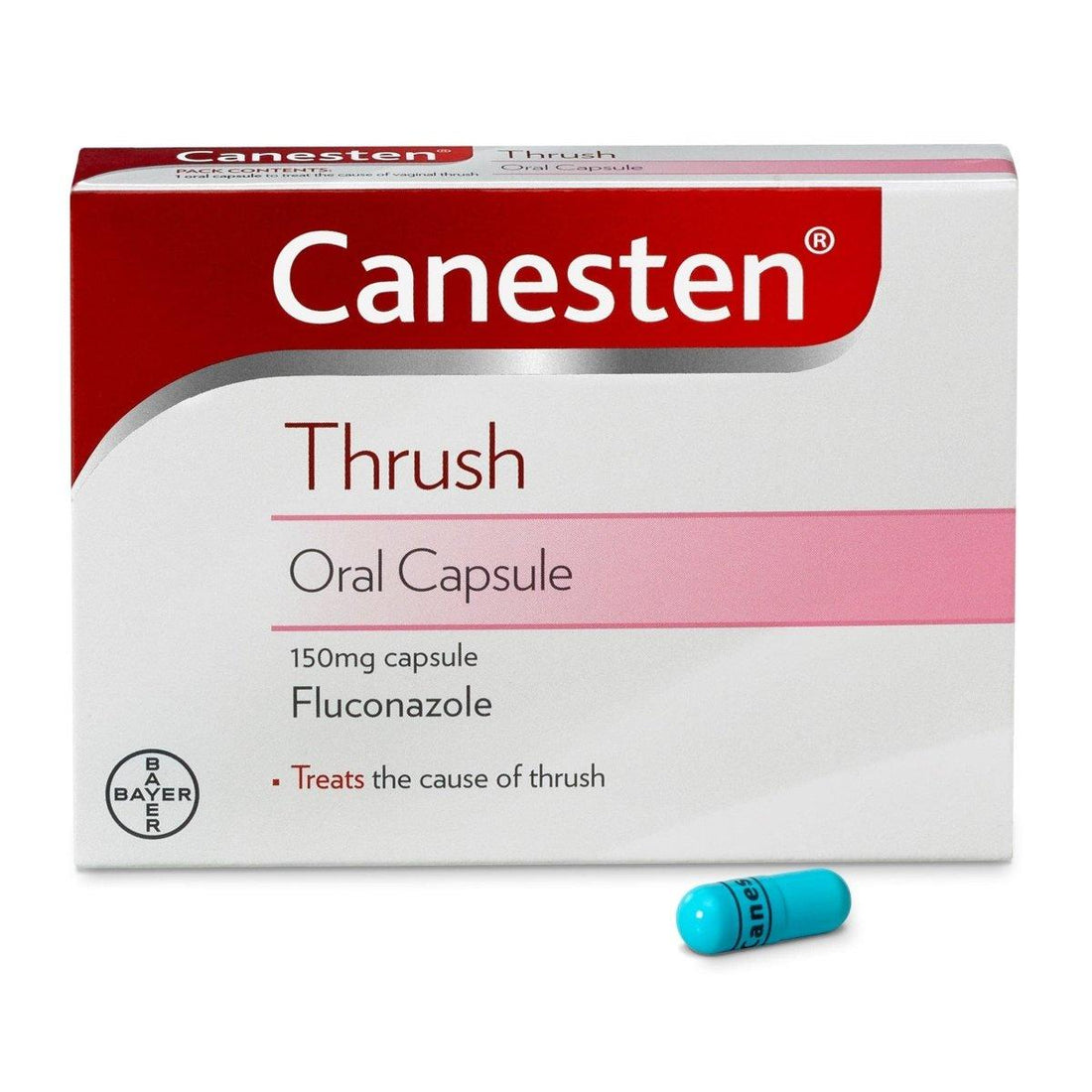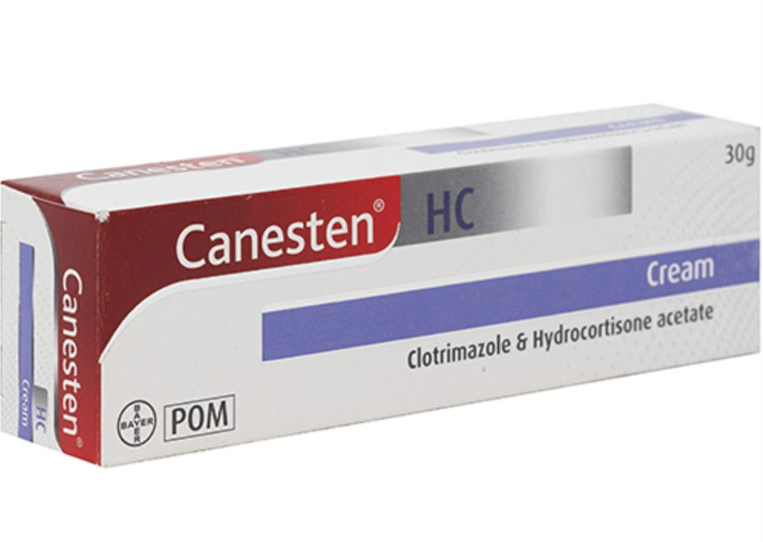4 products
-
Canesten Thrush 2% Cream
 Canesten Thrush 2% Cream
Canesten Thrush 2% Cream- Regular price
-
£ 7.90 - Regular price
-
- Sale price
-
£ 7.90
-
Canesten Thrush 150mg Oral Capsule
 Canesten Thrush 150mg Oral Capsule
Canesten Thrush 150mg Oral Capsule- Regular price
-
£ 10.90 - Regular price
-
- Sale price
-
£ 10.90
-
Canesflor Probiotics Supplement 10x Vaginal Capsules
 Canesflor Probiotics Supplement 10x Vaginal Capsules
Canesflor Probiotics Supplement 10x Vaginal Capsules- Regular price
-
£ 15.90 - Regular price
-
- Sale price
-
£ 15.90

What is Thrush?
Causes
Diagnosis
Treatments
Prevention
Further info
FAQs
Can men get thrush?
Can thrush be transmitted through sexual contact?
Are there risk factors that increase the likelihood of developing thrush?
Can I treat thrush with over-the-counter medications?
Medically reviewed & approved
This page was medically reviewed by Dr Sohaib Imtiaz (clinical lead) |




We are here to help!
Our Customer Service is available:
Monday to Friday 8 am to 5 pm.
If you need urgent assistance, do not use this service. Call 111, or in an emergency call 999.
More information about our service can be accessed from our knowledge hub below.





